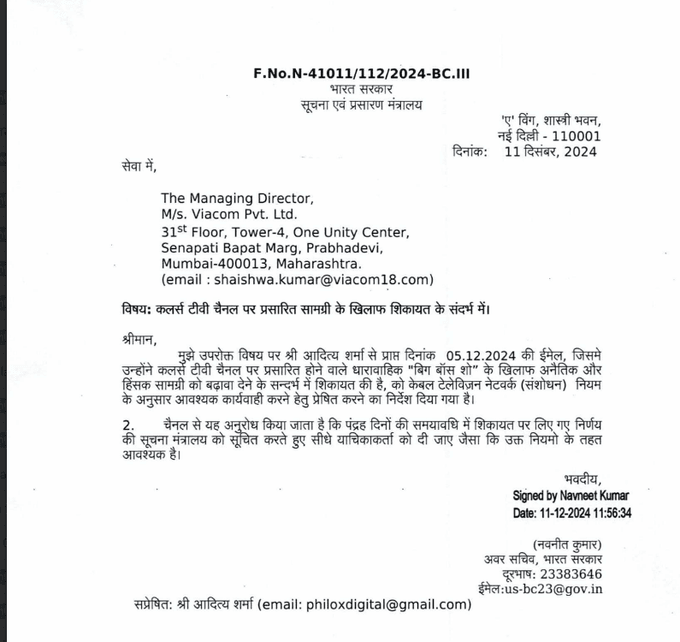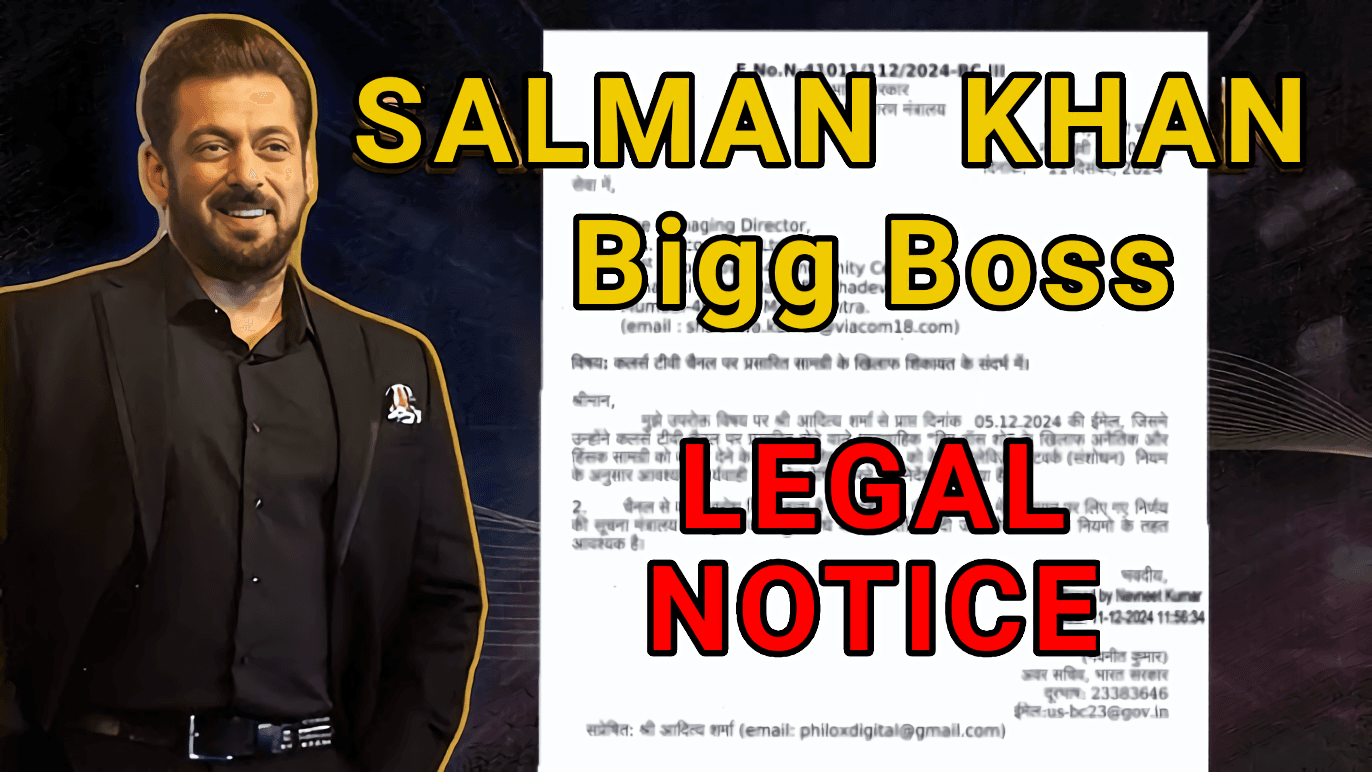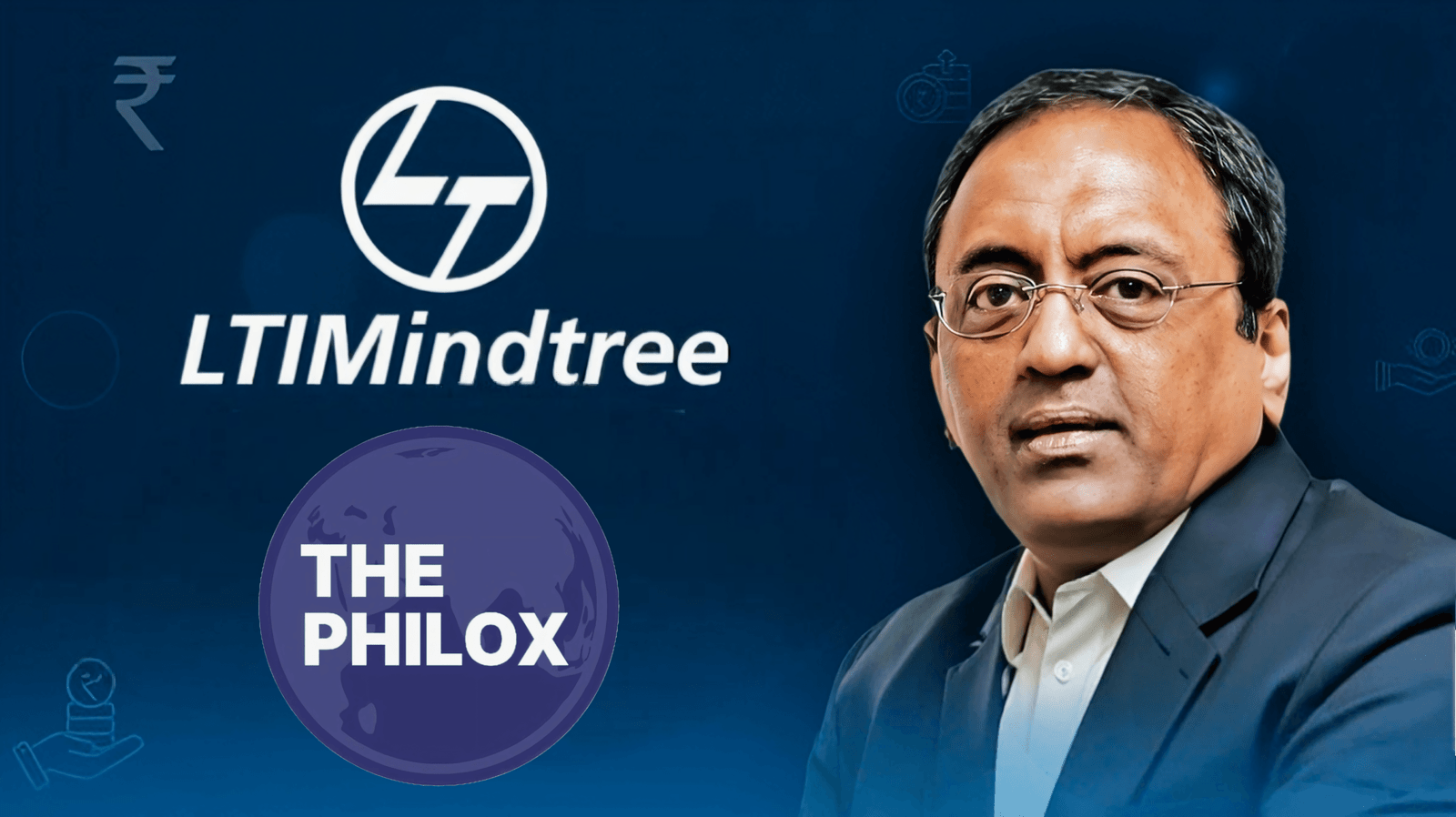A significant development for responsible media, the popular reality show Bigg Boss, hosted by Bollywood actor Salman Khan, has been brought under official scrutiny after a petition filed by The Philox, an influential media platform, raised concerns over the content of the show.
The petition drew attention to the alleged breach of cultural sensitivities and promotion of objectionable material on the show, which has forced the Ministry of Information and Broadcasting (I&B) to take immediate action.

The ministry issued a formal directive to the producers of Bigg Boss, mandating them to abide by prescribed broadcasting guidelines to ensure that the show aligns with ethical standards and societal norms.
This comes at a time when increased pressure on media platforms to meet higher standards in terms of ethics is emerging, especially with the realities of television.
For this long time, Philox has advocated for responsible media practice, and indeed, has drawn attention to the emerging trends in concern over prime-time entertainment content.
As one of the most watched television programs in India, Bigg Boss holds a significant influence on public opinion, and this intervention is viewed as a victory for those who called for greater accountability from content creators.
The Petition: A Call for Ethical Standards in Broadcasting
The Philox raised several key concerns about Bigg Boss, focusing on its content, which the platform argued was inappropriate for family audiences.
It pointed out multiple segments from the show that were deemed unsuitable for prime-time viewing due to aggressive behavior, inappropriate language, and suggestive themes often displayed by contestants.
As a reality show, Bigg Boss is known for its drama-filled moments, emotional confrontations, and intense interactions between contestants, which many argue can have a negative influence on societal values.
One of the most significant concerns raised in the petition was the prevalence of aggressive behavior and verbal abuse among contestants.
The format of the show, which usually pits contestants against one another in a controlled, confined environment, often results in conflicts that escalate into shouting matches, physical confrontations, and insults.
Such content, often aired during prime-time slots, could thus contribute to the normalization of toxic behavior in society. Given the vast viewership of Bigg Boss, particularly among younger audiences, there were concerns that the portrayal of aggressive interactions could influence viewers to perceive such behavior as acceptable or even entertaining.
In addition to the aggressive confrontations, the petition also pointed out the issue of inappropriate language. Contestants on Bigg Boss often use derogatory language, which many find objectionable for a program of national television, much less one that airs when people are likely to be in their homes with their families.
The petition contended that this use of explicit language and obscene remarks not only violates broadcasting standards but also assaults the cultural sensibilities of Indian society.
A prime argument from the petition was against the love relationships and relationships depicted within the show.
Bigg Boss is no stranger to the depiction of romantic relationship between contestants who, with time, result in highly dramatic on-screen flirting, emotional moments, and eventually breakups. Though others may find all these an entertaining aspect of the show, some such depictions of romance sometimes endorse unrequited feelings.
The petition argued that the way Bigg Boss handles romantic entanglements can often promote toxic relationship behavior, which could mislead viewers, particularly young impressionable audiences, into accepting such dynamics as normal.
Lastly, the petition also addressed the overall content tone of the show. While Bigg Boss has always been a site for participants to reveal themselves, it also involves several sensationalized and staged moments that attract the attention of viewers.
The petition presented an issue that such a scripted behavior might mislead the audiences into thinking the actions and responses of contestants were real or reflected actuality. This further contributed to the show’s portrayal of a distorted, sometimes harmful version of reality, which many felt could have a negative influence on its viewers.
Official Action from the Ministry of Information and Broadcasting
On being notified of the petition filed by The Philox against Bigg Boss, the Ministry of Information and Broadcasting acted swiftly in response to the grievances presented before them regarding the content of the program.
The Ministry issued a formal directive to the production house, Viacom Pvt. Ltd., mandating the show to adhere strictly to the established broadcasting regulations and content standards.
The Ministry issued a warning to the producers of Bigg Boss that they were to take immediate action whereby the content that would subsequently be broadcast during future seasons would meet the prescribed standard.
This would include those segments that are deemed improper for family viewing, in particular those with aggressive or offensive language and suggestive behaviors. The Ministry underscored the need to follow ethical standards in broadcasting, especially during prime hours when the show’s biggest audience are watching.
This is an important step toward regulation of entertainment content in India, so that Bigg Boss and other similar shows do not cross the cultural line or promote harmful behavior.
The directive sends a strong message to television producers and content creators that they must be more accountable for the content they broadcast, especially when it comes to reality television, which can have a profound influence on societal attitudes and behavior.
Salman Khan’s Role and Public Reactions
Salman Khan, host of Bigg Boss, has been one of the most important elements in the show’s success. He is one of the most popular and influential actors in Bollywood, and his association with Bigg Boss has been a reason for its popularity among millions of viewers.
However, his position as the host has also put him under the spotlight, especially with the negative attention surrounding the content of the show.
While Khan is widely credited for his charm, wit, and engaging hosting style, the handling of controversies has often been a problem for him.
Critics argue that being the face of Bigg Boss, Khan has an obligation to ensure that this show does not go contrary to broadcasting standards and does not encourage negative behavior.
Although he has previously defended the content of the show, stating that Bigg Boss is an entertainment platform and should be watched with a sense of humor, the recent petition and the Ministry directive indicate that the tolerance of the public for controversial content may be wearing off.
Although Salman Khan has not directly commented on the petition or the action taken by the Ministry, being the host of Bigg Boss now puts him under greater responsibility to address all those concerns that critics have.
Now, the producers of the show, along with Salman Khan, need to make sure that future seasons of Bigg Boss will be in compliance with the guidelines issued by the Ministry and with content that is entertaining yet socially responsible.
The Broader Impact on the Indian Television Industry
The intervention by the Ministry of Information and Broadcasting has been quite important for the Indian television industry, especially reality television. Bigg Boss is one of the most-watched programs in India, and it has an influence far beyond entertainment. Given the fact that the show has reached a broad audience and is shaping public discourse, the Ministry’s action reminds everyone that television content must be held to high ethical standards.
Bigg Boss scrutiny will be seen as a ripple effect on other reality television programs. Producers of such programs may face increased pressure to make sure their content meets the norms of society and adheres to the principles of ethics.
This will eventually shift the trend towards more responsible programming that doesn’t compromise social values and encourages no form of bad behavior.
This marks a victory for responsible media and civic activism for The Philox since the petition was successful.
As a platform dedicated to advocating for ethical standards in the media, The Philox involvement in the petition marks a role independent media outlets hold large corporations and media organizations accountable.
The action taken by the platform shows that media can play a powerful role for change, especially in ensuring the public interest is heard.
The action taken by the Ministry of Information and Broadcasting in response to The Philox’s petition is one of the most important moments in the ongoing conversation about media responsibility.
The directive to Bigg Boss’s producers to comply with broadcasting guidelines sends a clear message that content creators must prioritize cultural sensitivity and social responsibility, especially when it comes to reality television.
As Bigg Boss undergoes significant changes to align with the Ministry’s standards, the hope is that the show will become more mindful of its impact on viewers.
This action is not only a victory for responsible media but also for the larger cause of ethical broadcasting in India, ensuring that the entertainment industry can continue to evolve while maintaining a balance between entertainment and societal responsibility.




